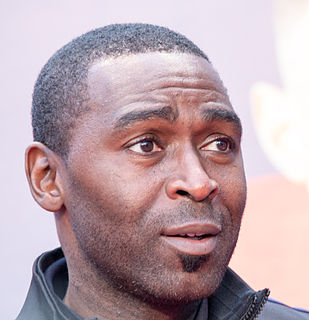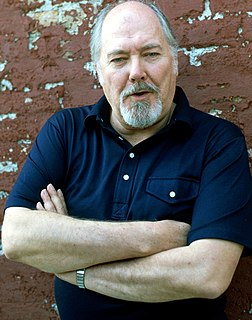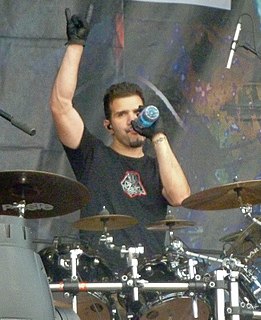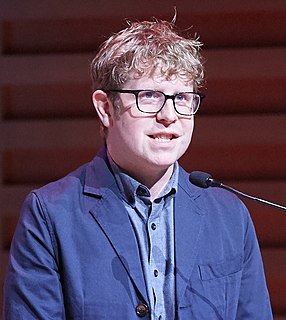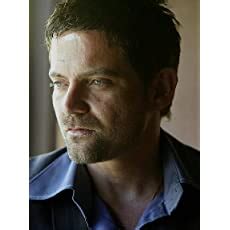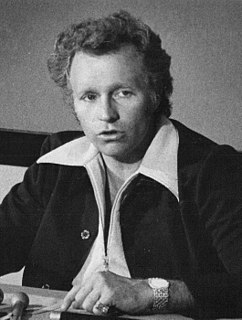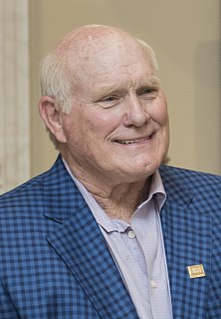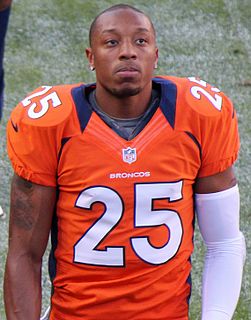A Quote by Andy Cole
I was depressed after the transplant because it's very tough to understand the trauma you still face. I remember emptying a big bag of medication and just crying and thinking, 'For me to survive another day, this is what I've got to take. For the rest of my life. I'm not sure I can continue.'
Related Quotes
If we take a hard look at what poverty is, its nature, it's not pretty - it's full of trauma. And we're able to accept trauma with certain groups, like with soldiers, for instance - we understand that they face trauma and that trauma can be connected to things like depression or acts of violence later on in life.
I am not a big crier. But I'd say it was after the Mendes fight. It was not because of the fight as such. It was everything leading up to it. It had been such a tough time. When I did my knee, I had some very dark times. Life is all about ups and downs and I'd say there had been a lot of downs, but I got through it, I won and after the fight, I was standing in the shower and I was crying, just letting it all go.
I was scared that no one would hire me. At that time, there was still a stigma attached to it. A big stigma. Actually, I think I was healthier after the operation than some people who have bypass surgery because I was completely cured. But when you mentioned "heart transplant," you got a very negative reaction. It triggered people's imaginations, and not in a good way.
I got out of Las Vegas after high school. I knew that if I stayed there, I wouldn't have been able to pursue my dreams as an actor or dancer. My family always told me to dream big, so I made sure that I got out of there and explored new places, because the world is huge. And I'm still learning new things every day in this business and in my life.
I think you should enjoy this life that you are given on this earth because we really don't know what it is in the afterlife. We can definitely prove that this life is this life here because we wake up every day and do the same thing that we do. The afterlife I'm not so sure about. So, I don't understand why you'd want to hurt other people in thinking that you'll go on in the afterlife to have bliss. I just don't understand it.
I got a chance to get an actual label. I performed this slow song, this ballad I have. I just remember going to the first woman I saw in the room and just getting on my knees holding her hand just singing. And I was like, you know what, I got to just sell it. I remember that day they were like, yo we want to sign you. [After] I went into the bathroom, I started crying, [and] I called my mom. I was like momma – I did it.
When I first went to university, I did a big shop with my dad. We bought loads of stuff but it didn't occur to me that I needed to refrigerate it, so I just put it in my room. I remember thinking, 'What's that smell coming from under the bed?' It was a bag of potatoes. How long does it take for a potato to rot? Months!
I remember the first day I got there, they started the take and after four takes I was on the ground, on my back, with a banana and a Twizzler in my hand, and my face was green, and they said, "You can't get back on set for another 30 minutes." That was a, "Welcome to Atlanta," and that put everything in perspective.
I was in end stage heart failure, liver and kidneys shutting down, and on an emergency basis they went in and planted a pump in my chest. It was battery operated. That kept me alive for 20 months and that got me to the transplant. And I wake up every morning now with a smile on my face, thankful for the gift of another day I never expected to see.
Especially in this business of football you got to get on your knees multiple times a day, just thanking God. I pray while I'm on the field because He has to be with me. One injury away from being done from playing football for the rest of my life or just that fast it can happen. So I just always got to pray for that covering. Make sure He's with me out there making plays with me. God wants to be involved in everything that you do. And I just try to involve Him. And that's what God said to do, to help build up His kingdom.
